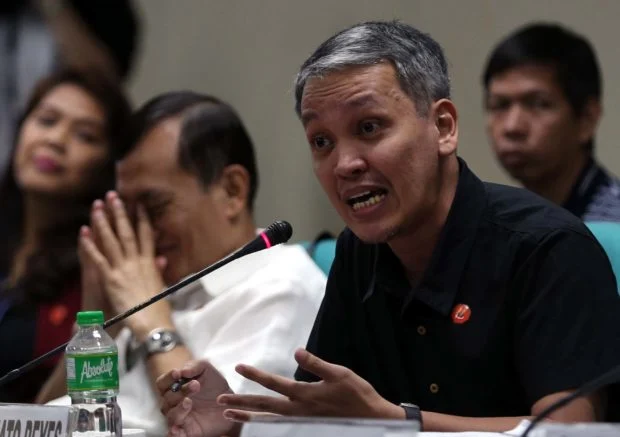
By: Krixia Subingsubing – Reporter / @KrixiasINQ ,Philippine Daily Inquirer /November 14, 2022
The government has cited opposing views among civil society groups on what constitutes human rights in its report to the United Nations Human Rights Council (UNHRC), causing concern in progressive group Bayan that this approach may be used to escape accountability for continued violations in the country.
In the 23-page advanced, unedited national report submitted by its Presidential Human Rights Committee Secretariat to the UN Universal Periodic Review (UPR) working group, the Philippine government noted an “emerging trend whereby conflicts arise in human rights discussions as a result of nongovernment and civil society organizations having opposing … positions.”
One of the “hotly contested issues,” it said, was of human rights as a form of defense but only for “those who do not advocate or resort to violent extremism to reform society.”
Bayan secretary general Renato Reyes, who is in Geneva as part of a Philippine delegation taking part in the fifth UPR cycle, said the government might be citing the competing views to “justify the rights violations committed in the drug war and counter-insurgency drive [as] necessary to ‘protect’ the public from illegal drugs and terrorism or at least say that there is a gray area involving human rights.”
“Does the PH government subscribe to the thinking that those accused of “violent extremism” and “terrorism” are not entitled to human rights? Is this why it engages in indiscriminate bombings of communities suspected of supporting rebels? Is this why many revolutionaries have been summarily executed instead of being taken as prisoners of war and hors de combat?” he asked.
Reyes urged the public to remain vigilant and critical of the government’s report, particularly on Nov. 14, the start of the fifth UPR cycle which reviews the rights record of UN member states every four and a half years.
No specifics
The Philippines also told the UNHRC that it had already “fully implemented” at least 103 recommendations but “noted or rejected” 33 others made following the fourth UPR cycle in 2017.
The government, however, did not clearly indicate which recommendations it had merely noted or rejected. Nevertheless it promised to continue implementing the UN Joint Programme (UNJP) and to “sustain its human rights advocacy in a democratic system of governance.”
“Under the new administration of President Ferdinand R. Marcos, who won the May 2022 presidential elections by an overwhelming majority of 55.8 percent, or 31 million votes out of the 55.5 million who voted, inroads in socioeconomic development anchored on social justice are enriching the human rights environment in our country,” the report said.
“In the same manner that the President won on a platform that called for a United Team, or Uniteam, so shall human rights in this new chapter of Philippine history be pursued—a government working in unity with the people,” it added.
Subdued scale
According to the report, the government, under President Marcos, was already “pursuing a human rights-based approach to drug control” with the support of the UNJP providing technical support and capacity-building to the country.
Mr. Marcos earlier promised to continue the drug war albeit on a more subdued scale compared to his predecessor Rodrigo Duterte’s take no prisoners approach, which led to the country being investigated by the International Criminal Court for alleged crimes against humanity.
The Philippines, in its report, also stood by the passage of the antiterrorism law, despite a recent UN Human Rights Committee report asking the government to review its provisions for overbreadth.
The government maintained that the 2020 law was crafted “to ensure [the country’s] adherence to and respect for human rights as found in the Philippine Constitution and international human rights standards, and that it shall not be subject to abuse or misinterpretation.”
It also affirmed its commitment to the UN Framework Convention on Climate Change and the Paris Agreement on Climate Change by, among others, reexamining current mining practices and reinforcing the implementation of air, water and waste management laws and policies. INQ